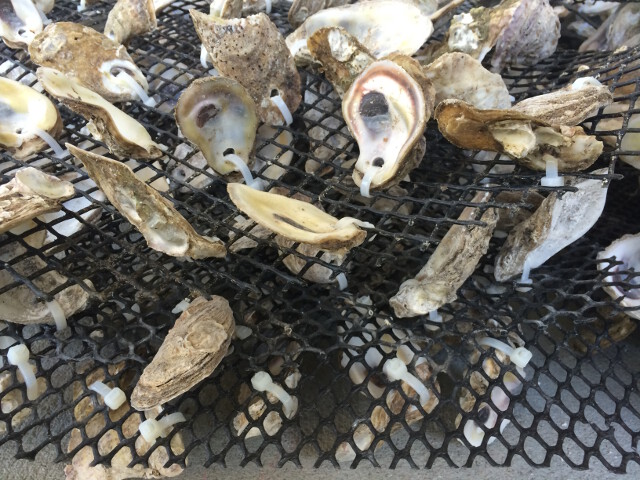Celebrate Earth Day By Making Oyster Mats With Florida Tech on April 21
Free workshop invites volunteers to help restore the Indian River Lagoon by creating habitat for filter feeding animals
This Earth Day, the public is invited to build oyster mats with Florida Institute of Technology’s Indian River Lagoon Research Institute (IRLRI). The mats will be deployed in the Indian River Lagoon as part of the Living Docks program to promote the growth of filter feeding organisms such as oysters, sponges, barnacles and tunicates along boat docks and sea walls. The oyster mats have the potential to significantly improve local water quality as well as provide habitat for crabs and fish.
Years ago, the Indian River Lagoon teemed with oysters. But scientists say that over the years, overfishing, pollution and coastal construction such as bridges and seawalls have wiped out huge numbers of them.
Besides filtering impurities from the water, many marine species depend on oysters for food and habitat; and large clumps of oysters create natural reefs that help block wave energy, which prevents shoreline erosion.
Robert Weaver, an associate professor and Kelli Hunsucker, a research assistant professor, in the Department of Ocean Engineering and Sciences at Florida Tech started the Living Docks program. The program enables non-scientists and community members to create inexpensive but effective habitats that encourage oysters and other organisms such as sponges and barnacles to collect near man-made structures.
Construction of oyster mats is relatively simple: oyster shells are attached to mats and hung from the pilings of docks. The shells attract oyster larva and other filter-feeding organisms and encourage them to make their home there.
Healthy adult oysters can filter 50 gallons of water per day. “One dock with 37 pilings with an average of 32 oysters per piling can potentially filter about 21 million gallons of water per year. This volume of water is the equivalent to the volume of water needed to fill 420,000 bathtubs!,” said Hunsucker, not including the filtering impact of other organisms also attracted to the mats, such as barnacles and sea squirts.
Volunteers will meet on April 21 from 2 to 6 p.m. on the lawn of the Link Building on the Florida Tech campus. Volunteers must register to attend the free workshop, so event organizers can provide adequate supplies. To register, go to: www.eventbrite.com/e/living-dock-oyster-mat-workshop-tickets-33248051818





